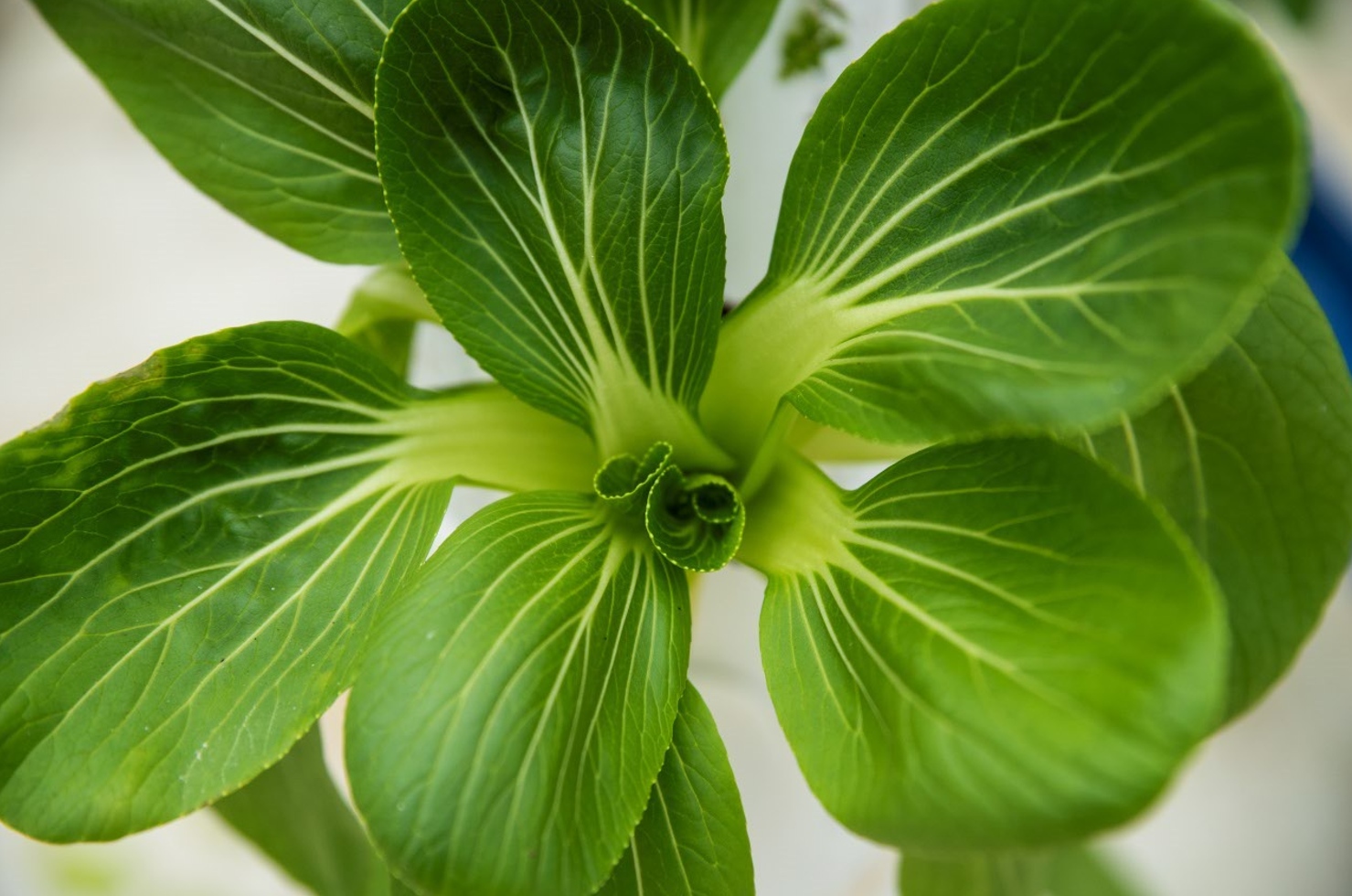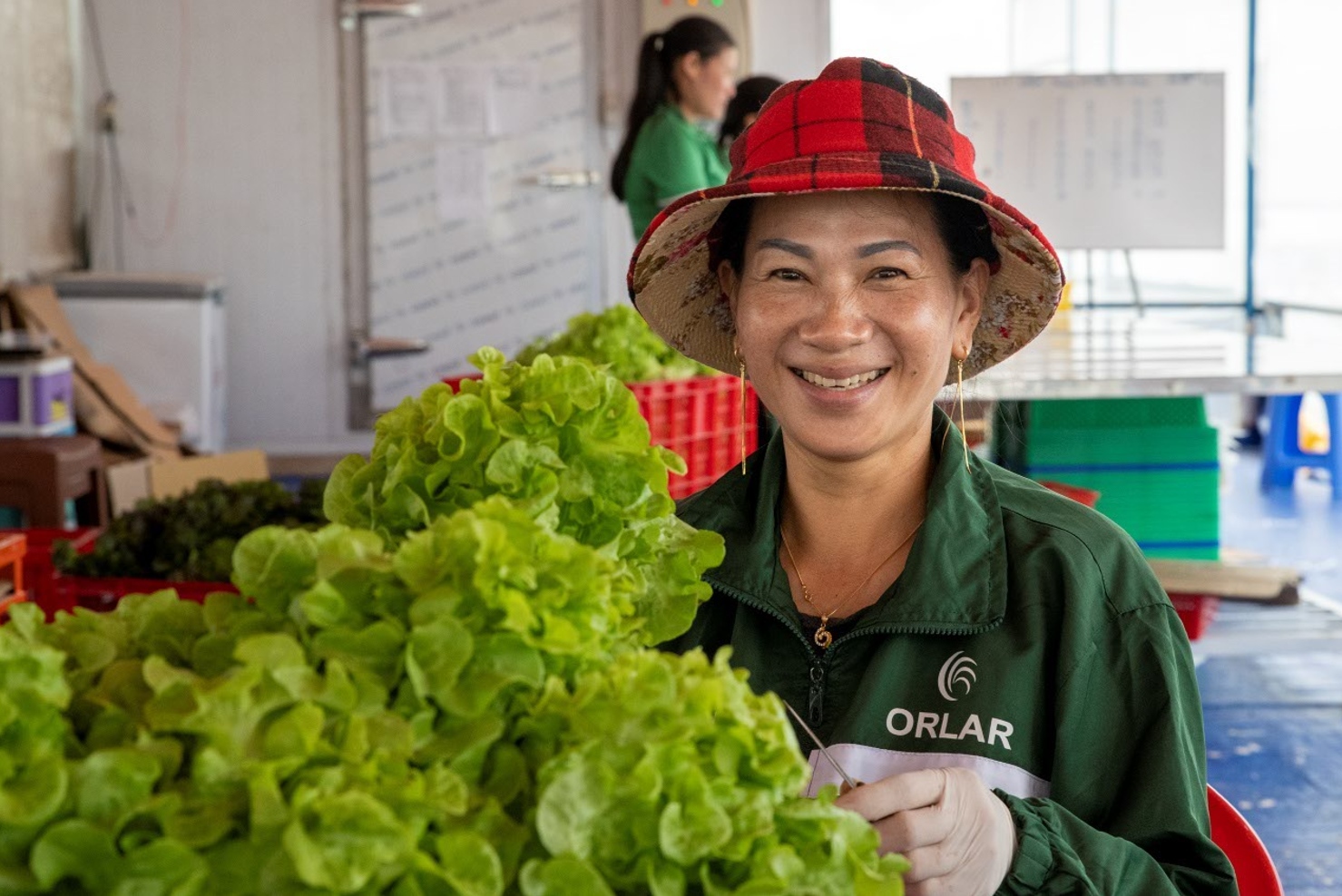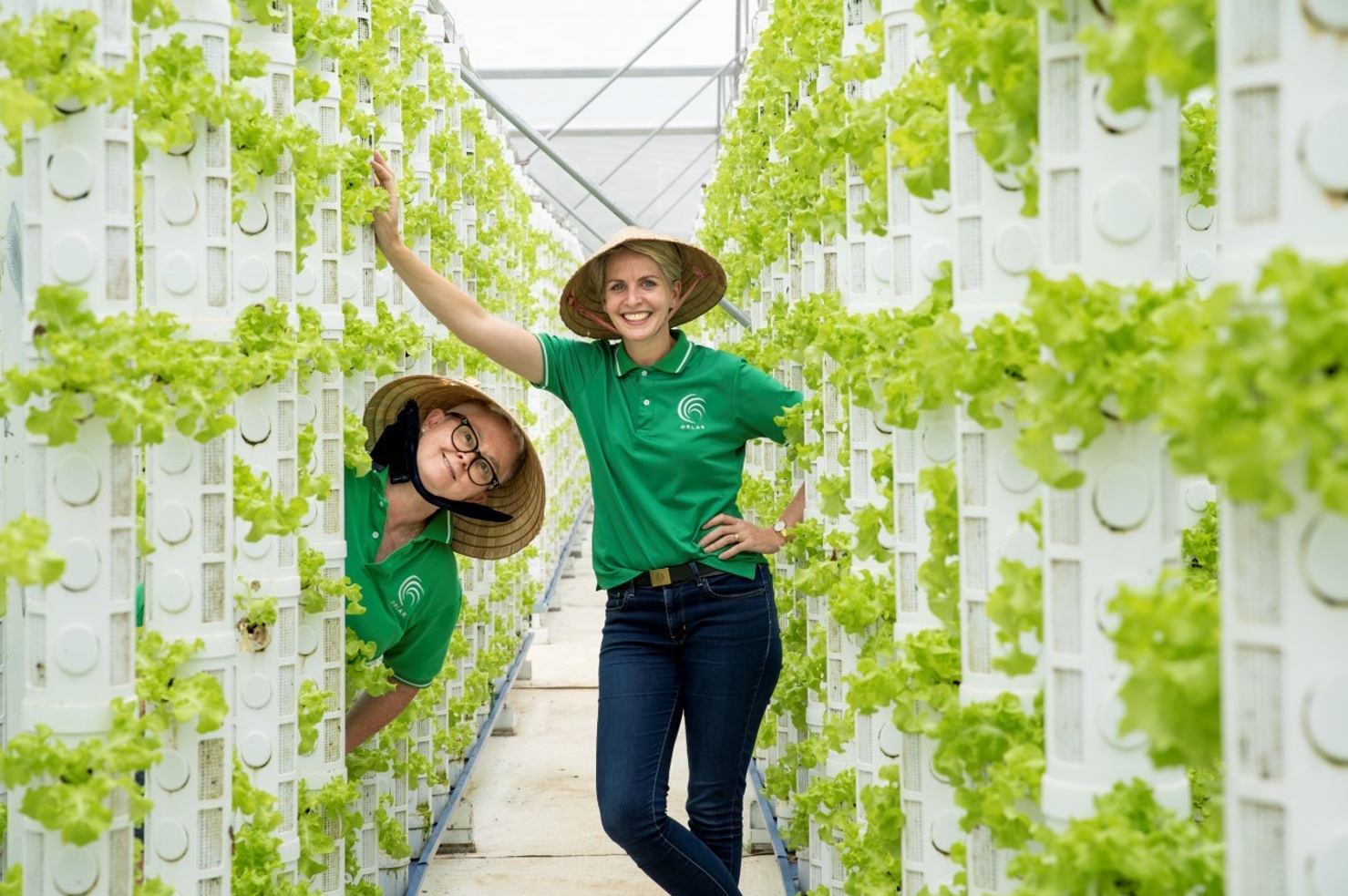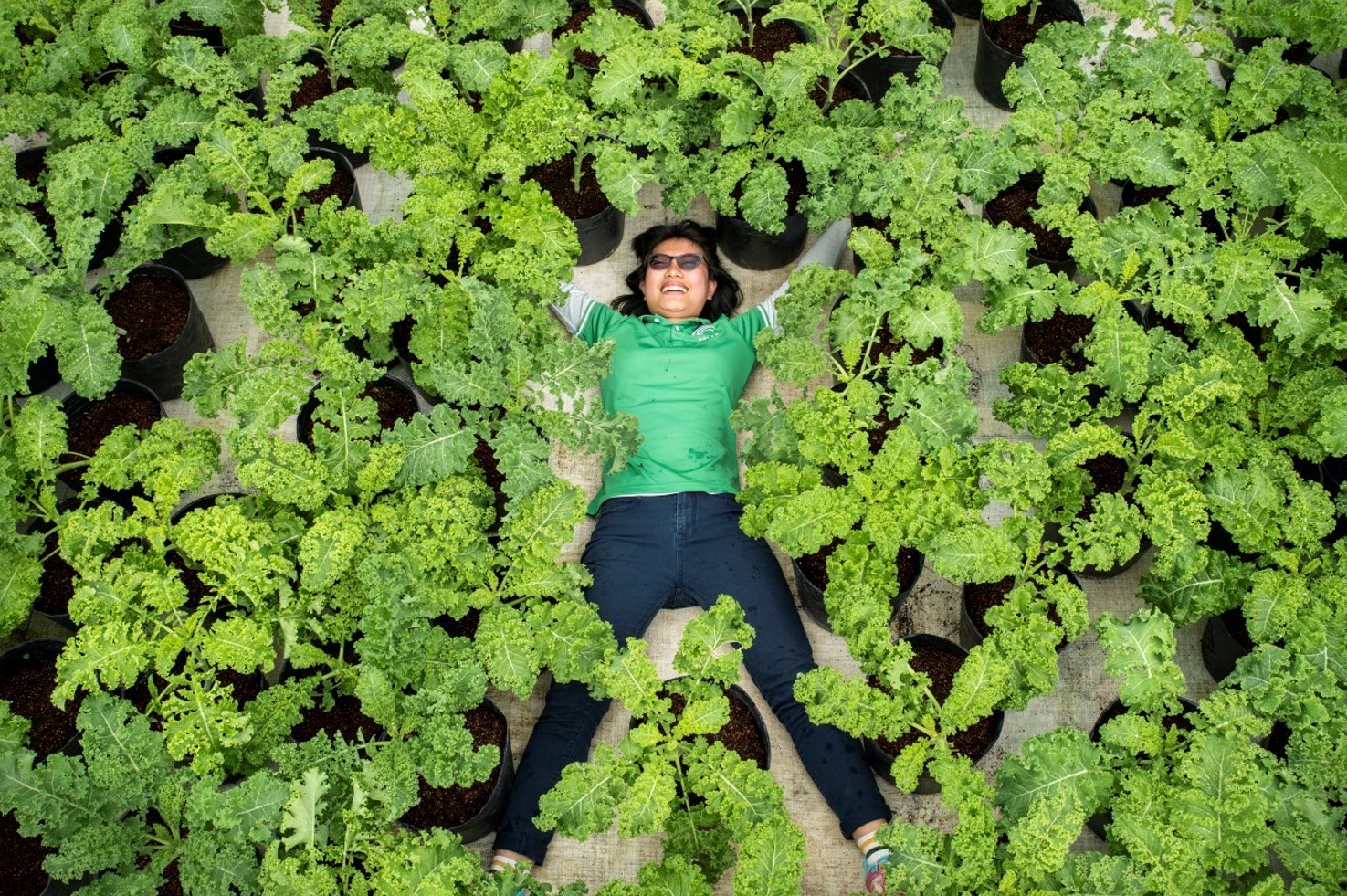The daughter of an Australian coal miner has developed a novel method of vertical farming and is now using it to establish a business in Vietnam. One Dutch investment firm estimates the company's potential worth at $1 billion. Produce grown in this cutting-edge vertical farm emits zero nett greenhouse gases and does not contribute to fertiliser or pesticide pollution. Epicure sat down with Lyndal and discussed how You and your loved ones can eat the healthiest, most sustainably sourced food possible while simultaneously doing your part to protect the planet.

Everyone is talking about agri-tech as a trend. So how has Orlar implemented Agri-tech differently from others?
Talk about Agri-tech is widespread. This is mostly supply driven. For instance, LED light efficiency is improving. Investors have used the tech a lot because of this. Such sophisticated tech can raise vegetable prices beyond customers' means. This cost is mostly energy use and intensity. When energy prices are high and demand is high, it's hard to operate cheaply. Investors love apps, lights and big words.
In these very expensive technologies, energy is used in the form of climate control, fertilizers, imported growth media that is wrapped in plastic and energy for pumping water. The growth substrate can often end up filled with plant roots and fertilisers before it is disposed of in a landfill as waste. This supposed “high-tech” can often be very wasteful- and the consumer just doesn’t understand why the price is so high. However, we have developed demand-driven technology. We aimed for the lowest possible price point so we would have a total market of billions of people in SE Asia. Our objective was to develop the most sustainably intensive technology and not the most energy intensive technology.

We control plant growth by allowing it to deal with stress in an improved way and minimizing energy use. Not by using so much energy, the plant doesn’t feel stressed. The important part here is by improving the plant we also improve its shelf life dramatically. We have products that last up to one month after the consumer purchases them and that is well-proven. We are very good for the environment and very good for the consumer at the lowest price possible. Orlar uses very little energy to operate. In our case, the highest tech uses the lowest energy. That’s smart-tech.
Developing agriculture in a country with a rich agricultural culture like Vietnam, what advantages and disadvantages have you met?
The Vietnamese love the product and are aware of the challenges we have had to overcome to bring such high technology here. The Vietnamese farmers are aware of the cleanliness and zero pesticide risk we pose to them as workers.
The young Vietnamese graduates see Orlar tech as the kind of technology they want to work with. World-class and we expose graduates to incredible experiences. We produce a product that is only 10% of the cost of imported and by reducing imports it is very good for the Vietnamese economy.

Can you clarify how Orlar has created the world's most efficient food production technology?
Orlar produces the cleanest, longest-lasting, highest-quality vegetables in Vietnam, an emerging economy. In thousands of tests, we have no residues, no nett glasshouse gas emissions, and high-intensity production in small areas with almost no energy use.
Raising capital for a business has never been easy for female entrepreneurs. How did you guys do that?
Deep tech funding raising is our hardest task. Investors choose fintech, social media, and gaming apps or investment. We're talking to various investors but can't guarantee success. We're not concerned as we execute. We are prepared to scale organically from a wonderful little firm with amazing tech. The hardest part is finding investors who want us to succeed from the start and don't disagree with us on business strategy. Many investors will "discount" us to acquire a nice position.

Especially when women founded and operate the firm. 7 of our top 8 employees are women, and 90% of the company is female. Statistically, only 5% of startup enterprises funded are women founded. We execute despite this dreadful statistic. As we deliver, investors want in, but we have become selective. Despite the difficulty, we continue to execute for Vietnam’s people, our customers, and all our stakeholders. We will never stop because our vision is too huge and our impact is so enormous access to capital is only part of developing a successful business. We will continue to fight to maintain our vision. We are in many talks now to licence our tech so we don’t need others capital.
Why did you choose Vietnam, specifically Ho Chi Minh City, to start your sustainable agribusiness project?
My PhD was in pesticide fate and transport in the environment and I did a Post-doctoral appointment in pesticide residues in the food supply chain. I then worked in GHG emissions and abatement in mining for many years. Climate change is real and it is impacting places like the Vietnamese Mekong Delta faster than anywhere else in the world. Or we are one of the top 3 impacted regions. As an emerging economy with a high growth rate, Vietnam may see significant GHG emissions from importing clean food. My desire was to provide the cleanest food possible to reduce cancer risk in the community due to food consumption and make it inside Vieetnam.
Your background (Sydney Uni PhD in environmental chemistry and a post-doctoral fellowship on pesticide residues in South-East Asian food chains) is your biggest strength when starting a business in Agri-tech?
Our women's greatest strengths are passion and determination. My wife Amanda Cornelissen is the best horticulturist and our largest asset. Building a great business requires attention on production. We hire the finest, but Amanda hasn't always received the best support. Ms Ngan Mai from Long An has been with us the longest, and as she develops, we observe her great strength and tenacity. Our CEO, Jacquie OHara, keeps the business moving. Sales leader Ms Ha Nguyen has worked hard every day to improve client connections and promote new sales. Our accountant Ms Tho works very hard. Cass Gardner invests in Brand, Marketing, and Sales. My main strength in beginning and growing the firm is that I focus solely on finding the best people that share my vision. Of course, they are all better at what they do than I am.
Orlar is committed to growing people besides growing food. How did the company do it?
Our hardest challenge. In order to grow people we need to know what they want inside their culture and we, unfortunately, don’t always get it right. We try as hard as we can. We always put our people first and often to our own detriment. As an example, when most companies were removing people due to COVID we kept them employed and we lost a lot of money and equity dealing with it.
But we refuse to believe people are anything but good. We know when we put people on videos and in news articles they get offers to work elsewhere with big corporations and we can’t afford to match wage offers. But the people who stay are worth it. We have moved from a merely capacity-oriented interview process to developing talent for the best people committed to our vision. We focus on developing good people. And those people who moved from seasonal wages to full-time employment with accommodation and education incentives stay and we love seeing them develop. We are joyous when we see that. And investors don’t see that on a balance sheet and sometimes we just have to say “this is our priority in gender equality and career advancement and we are here for the long haul and investors will come along when the time is right”. It's often a cliché that your people are everything. At Orlar we live and breathe it. sometimes we don’t get it right we admit, but it’s better that we put all our efforts into trying. We sleep well at night.

How do you predict the potential for the development of Agri-tech in Vietnam?
This time is very exciting but it will take a lot of investment and government policy will have to support it. the policies will need to filter down to the Provinces. At the end of the day, Vietnam will suffer the most from climate change and Automaton of Industrial processes. We need technologies that help the farmers adapt to climate change or farming communities will be adversely affected. I know Vietnam can be working with the Australian Govt and through ACIAR we are one of the biggest contributing countries for development and have been for 50 years. I am incredibly proud of Australian history here. Long before Vietnam started its meteoric rise as an economy Australian assistance was here. Our Consul General in HCMC is Ms Sarah Hooper and she is constantly asking for advice and support for Vietnamese farmers. We will always step in and offer any help we can with any support required.